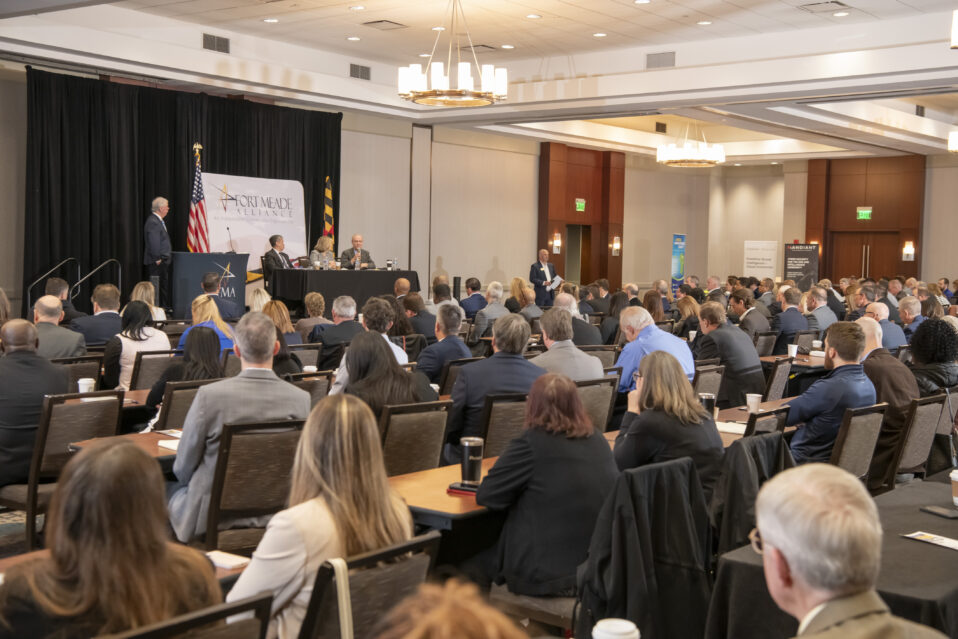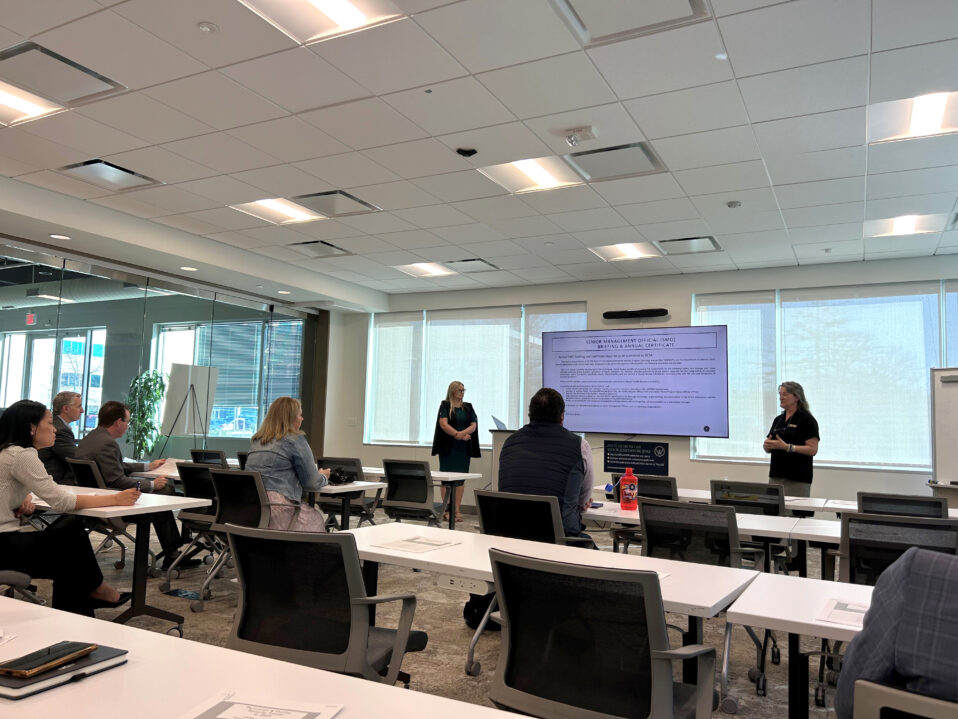 The moment that members of the Fort Meade Alliance Foundation (FMAF) worked towards for nearly seven years finally happened at 4 pm on Monday, June 25th.
The moment that members of the Fort Meade Alliance Foundation (FMAF) worked towards for nearly seven years finally happened at 4 pm on Monday, June 25th.
A 501(c)3 nonprofit that manages charitable initiatives designed to support Fort George G. Meade, the FMA Foundation long ago recognized a profound need for improved, on-post resiliency and education services for military members and their families, federal workers, reservists and retirees. So the FMA Foundation embarked on an unprecedented initiative to build a Resiliency and Education Center and a $3.6-million capital campaign to fund the project.
After years of planning and 18 months of active fundraising, members of the Ready, Strong and Connected Capital Campaign Committee secured the donation that pushed them $5,000 over their fundraising goal and five days ahead of their target completion date.
“It was an emotional moment. The one thing that came to my mind was the thousands of hearts and twice as many hands that went into achieving this incredible milestone,” said Deon Viergutz, President of the FMA Foundation.
“It was a big number to hit and it’s a much bigger project than the Fort Meade Alliance or Foundation has ever tackled before,” said Jay Baldwin, Vice President of the FMA Foundation. “But we delivered a message to the broader community about the importance of the mission of Fort Meade, the need for better resiliency and education services, and how this project could benefit more than 160,000 people. And the community rallied to support Fort Meade.”
Service men and women, federal workers and military families experience uncommon stress due to Fort Meade’s unique standing as the nation’s preeminent cyber installation and due to the individual missions of the 119 commands and agencies on post. Yet resiliency and education services have been housed in World War II era buildings and limited by their lack of space and modern technologies. Members of the Fort Meade community have seen a clear need to improve those services.
In recent years, Fort Meade has posted higher rates of chronic disease, behavioral health disorders and substance abuse than other U.S. Army installations. Fort Meade has a higher percentage of active duty soldiers with medical deficiencies that cannot be resolved within 72 hours (making them not medically ready for service) and one of the highest obesity rates among Army installations.
So working in partnership with the Garrison, the FMA Foundation developed a plan to transform Fort Meade’s historic Kuhn Hall into an expansive, welcoming, state-of-the-art Resiliency and Education Center. The 9,000-square-foot renovated facility will serve as the hub of information, programming and services for the Fort Meade community — covering all five areas of resiliency: physical, emotional, social, family and spiritual.
“This is a need the Army has been facing and they entrusted us, the Fort Meade Alliance and Foundation, to actually deliver this capability because they know we can do hard things,” Viergutz said. “This is a way for us, in uniform or out of uniform, to further serve the country and to further enable our military men and women to be the best that they can be.”
The Foundation’s “inclusive” approach to fundraising reached a broad spectrum of individuals, companies and organizations, and inspired many people and organizations who aren’t typically involved with the Fort Meade Alliance to make donations, Baldwin said.
Local charitable foundations and corporate leaders generously supported the fundraising effort. The State of Maryland and Anne Arundel County, through the county’s Local Development Council, made large contributions to the campaign. You can see a complete list of donors at www.ftmeadealliancefoundation.org.
The campaign also inspired some to support Fort Meade in additional ways, such as offering in-kind services or joining the FMA’s Military and Family Committee, its Education and Workforce Committee, or other volunteer efforts.
“The awareness created through this campaign is really helping to identify other avenues where folks can get involved and give back,” Viergutz said. “The Foundation has grown through this effort and we will be even better positioned to respond to future needs at Fort Meade.”
Project managers contracted by the FMA Foundation have developed plans to renovate Kuhn Hall.
The FMA Foundation will offer a “gift” of the renovation to the United States Army this summer. Once that gift has been accepted, the FMA Foundation will temporarily take over responsibility for the Army-owned Kuhn Hall for the length of the renovation and then present the completed Resiliency and Education Center to the Army.
The FMA Foundation hopes to start the renovation this October. The nine-month project will preserve historic elements of Kuhn Hall while outfitting its interiors with modern, welcoming spaces and state-of-the-art technologies for resiliency and education services.



